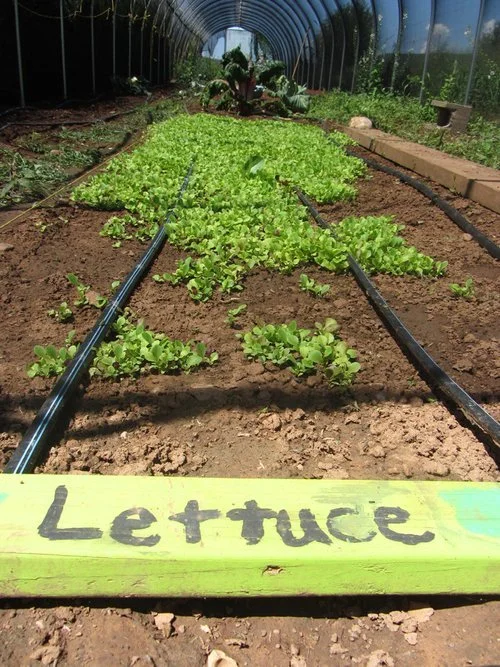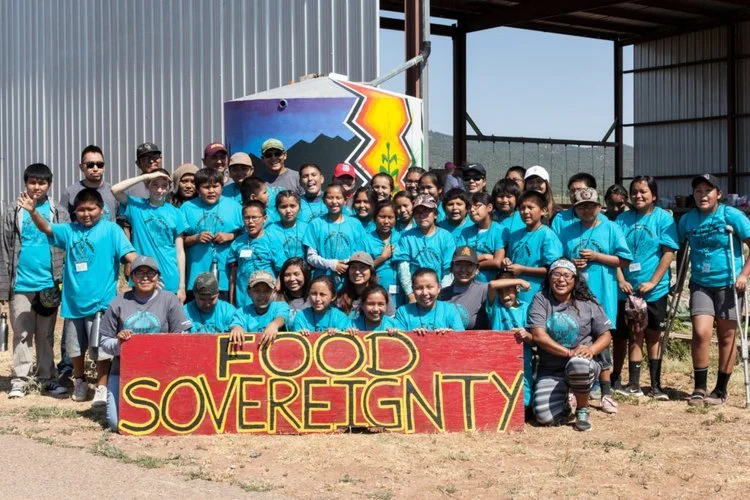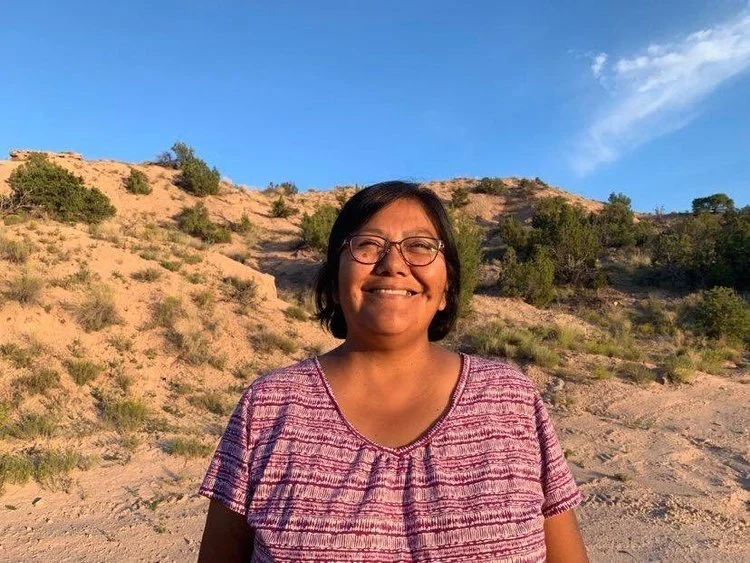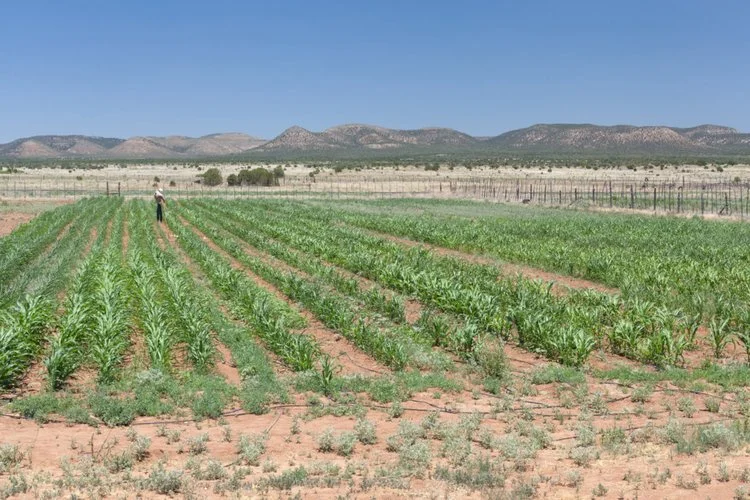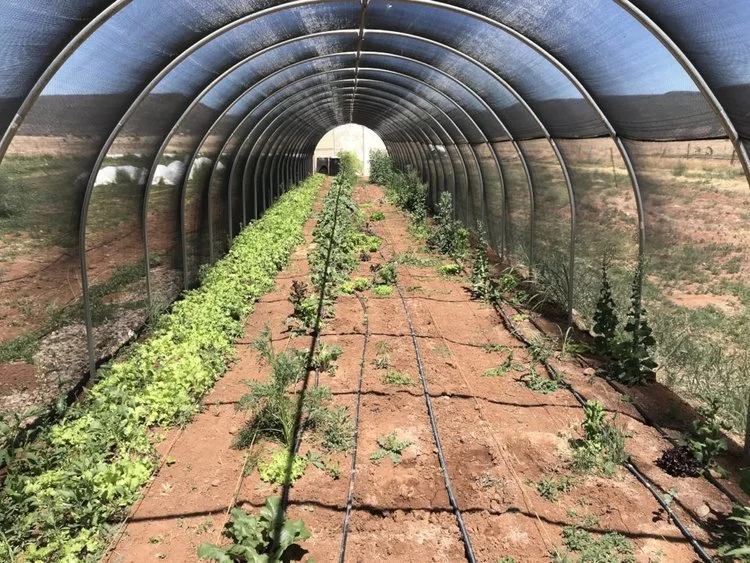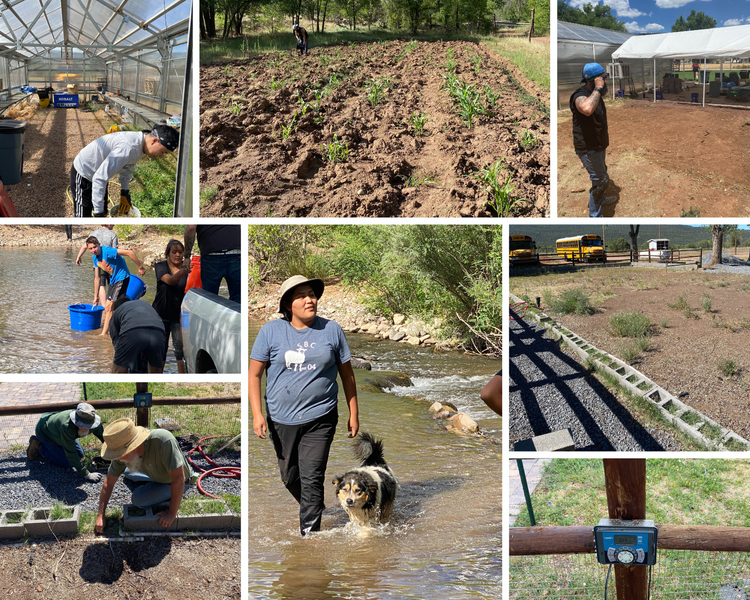The Opportunity is in the Problem
The blog was written by HSP Director Ben Blevins
HSP is a network of social workers, scholars, faith-based community members, and Indigenous change-makers partnering to solve critical social and ecological problems.
We utilize the methodologies of Participatory Action Research (PAR) " to bring together action and reflection, theory and practice, in participation with others, in the pursuit of practical solutions to issues of pressing concern to people" (Reason & Bradbury, 2001). PAR utilizes a spiral of steps, each composed of a circle of planning, action, and reflection about the results of an action.
One aspect of PAR is to reflect on the positionality of partners in a relationship and develop an understanding concerning the objectives, limitations, and perspectives. PAR is not about studying or helping the "other." It is about relationships and dialogue concerning feelings, fears, aspirations, and constraints.
One aspect of intercultural partnerships in the context of Indigenous communities situated on lands controlled by the United States of America is the social structure referred to by Indigenous scholars Sherry Pictou and Glen Coulthard as the liberal framework of recognition. Indigenous societies' governance systems differ significantly from those imposed by the settler state and tend to be inclusive of all human and non-human living relations. A result is a decentralized form of national leadership prioritizing harmony in social and ecological relations.
The liberal framework of recognition is a term used to describe the dilemma confronting Indigenous organizers. One way to explain the framework is to analyze the work of sociologist John Collier, considered an early innovator of PAR. Collier was the Commissioner of Indian Affairs during the presidency of FDR. Before his administration, Federal policy was aimed at the termination and complete assimilation of tribal communities into the American mainstream. Collier worked with Indigenous communities to develop policies that permitted them to remain with as much sovereignty and integrity as possible.
It is referred to as the liberal framework of recognition because tribes were allowed to continue to exist as long as they organized around liberal principles of state dominance, hierarchical political representation, and the corporate organizational structure for tribal enterprises. The structures required for survival as an identity threaten the underlying cultural system upon which this identity is formed.
In the liberal recognition framework, tribal governments have monopoly control over all decision-making, resource use, and business activities. The dilemma for Indigenous organizers is that challenging or operating outside this framework underminds the structure on which continued survival as a nation is based. Indigenous nations have been struggling for survival in the context of settler colonialism that seeks the elimination of native populations. Tribal sovereignty and the survival of cultural identity are the priority issues, and all organizing efforts must operate within that framework.
Indigenous change-makers operate in an incredibly complex environment of Federal, State, and Tribal laws and must also navigate the cultural differences between the dominant and traditional values. Sherry Pictou documents the forms that patriarchy is replicated through the liberal framework of recognition in tribal communities. Young female tribal members seeking to implement change-oriented initiatives face significant challenges.
One challenge is the disempowering dynamics associated with the hierarchical political structures for starting social enterprises. In addition to obtaining approval, there is always the danger that politically powerful individuals can co-opt a genuinely innovative and potential idea.
A solution we have been working on is developing an initiative for female tribal members interested in culturally sustaining horticultural and deep ecology education. The innovation is to situate these social entrepreneurs as independent contractors for tribal institutions. The space of opportunity is a problem associated with community gardens.
It has been almost a decade now that there has been a fad to build community gardens and support small-scale horticultural production as a means of poverty reduction, education efforts, and nutrition improvement. The problem our community partners encounter is not the intervention itself but the means of implementation.
A common issue in empowerment programming is that donors and government agencies like to fund material projects. Finding the funds to purchase cement or other materials for construction projects is relatively easy. Finding funding for these projects' staffing, maintenance, and utilization is a much more challenging endeavor. The schools and social service agencies do not have the budget to sustain staff dedicated to maintaining and utilizing the gardens.
The innovation that we are assisting female tribal members to develop is the formation of a community garden maintenance service modeled on lawn service providers. While each institution does not have the resources to dedicate to a full-time position, splitting costs between several agencies provides an economy of scale to assist these social entrepreneurs in developing an income-producing and socially beneficial activity.
Photos represent how the team has engaged in restoring flood irrigation canals over the last year, including creating head gates and canals. Watering must be done by hand during the last few weeks before the rainy season fills the river to run high enough for the intake channels. The team also engaged in overhauling the garden infrastructure and greenhouse at the Roosevelt school. Projects included installation of a timed irrigation system and installation of pavers for education and community meeting space.
This last quarter, we supported the endeavor by purchasing equipment and facilitating a partnership with the Theodore Rosevelt School on the reservation. The team uses an abandoned greenhouse and garden infrastructure to develop native plants and Apache foodways demonstrations. We are developing partnerships for the creation of STEM-associated lesson plans and curriculum activities to be offered to local behavioral health agencies.
We have contracted with a community organizer, Muna Hijazi, of Tucson, Arizona, to assist in coordinating collaborations with community organizers and scholars working on issues of sustainable agriculture, ethnobotany, pollinator promotion, and place-based education to assist in program development.
References:
Coulthard, G (2007) Subjects of Empire: Indigenous Peoples and the 'Politics of Recognition' in Canada, Contemporary Political Theory
Pictour, S (2020) Decolonizing Decolonization: An Indigenous Feminist Perspective on the Recognition and Rights Framework, The South Altanict Quartlery DOI 10.1215/00382876-8177809

